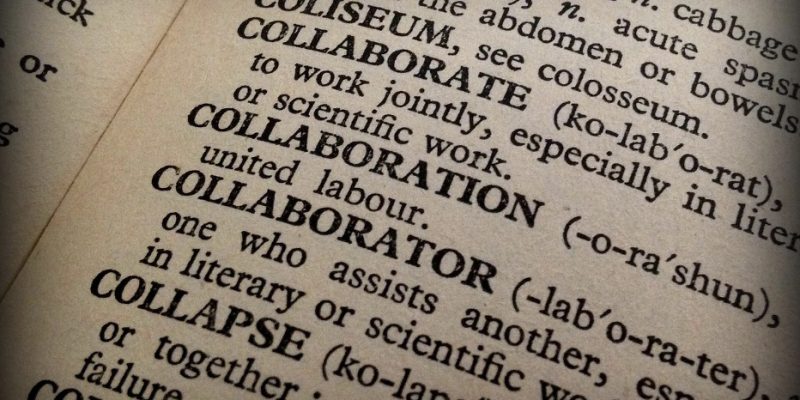English is the most popular language in the world owing to its standard use in academics and the corporate realm. Globalization and remote learning opportunities call for a standard mode of communication that is comprehensible across all platforms, and English has secured this position as an international language.
Mastering the English language, however, can be quite a task for those new to the language’s intricacies. One such area in which most individuals, including native speakers, are prone to make a mistake is homophones. Homophones are essentially words that are pronounced the same way but have different meanings altogether.
The ability to differentiate between homophones comes from existing knowledge of the English language, and from regularly conversing, reading, and writing. Given below are ten common homophone mistakes you unknowingly might be making, and how you can avoid them:
1. Whether and Weather
This is another set of homophones that most people tend to get confused between. While the term “whether” refers to expressing doubt in any given situation, “weather” refers to the atmosphere present at any given place at a set time.
To better understand this difference, the following sentence is presented: “She is adamant about hosting a baby shower out in the open, irrespective of whether the weather is wet or dry.”
2. Effect and Affect
The effect vs affect confusion is an ongoing one, and this is a homophone mistake that even seasoned academicians make often. While the term “effect” refers to a state of change brought about due to a certain event, “affect” refers to the actual production of an effect.
To better understand this difference, the following sentence is presented: “Prolonged exposure to screens can affect one’s eyesight, and have an adverse effect on one’s quality of life.”
3. Lose and Loose
Adding to the list of commonly confusing homophones, “lose” and “loose” deserve a special place since not only is the lose vs loose mistake pretty silly, but it also produces some really funny coincidences. While the term “lose” refers to being defeated, “loose” refers to anything ill-fitting or is the opposite of tight.
To better understand this difference, the following sentence is presented: “You are most likely to lose the Rising Fashion Designers’ Cup this year if the clothes on your models’ backs are too loose.”
4. Week and Weak
Yet another silly mistake one tends to make is their failure to differentiate between a week and weak. While the term “week” refers to a period of seven days, “weak” refers to the state of having little to no physical energy or strength.
To better understand this difference, the following sentence is presented: “Jane might not show up to work this week either since she is feeling weak even after recovering from typhoid.”
5. Accept and Except
Another common confusion witnessed in the use of homophones exists between accept and except. While the term “accept” refers to a verb that means to receive something, “except” is a preposition that means to exclude.
To better understand this difference, the following sentence is presented: “While preparing the guest list for their upcoming wedding, Mike was ready to accept all names presented by his fiance except for her gym trainer, Sam.”
6. Brake and break
This set of homophones is another one that causes even seasoned professionals of the English language to double-check what they utter or write simply because of the underlying similarities between the two. While the term “brake” refers to stopping the motion of any given object, “break” refers to damaging or destroying something.
To better understand this difference, the following sentence is presented: “The driving instructor asked his students to be careful of when and how they hit the brake on their car to ensure that they do not break another vehicle on the road.”
7. Here and Hear
Yet another commonplace confusion that exists in the use of homophones exists between here and hear. While the term “here” is an adverb that refers to in, at, on, or a particular time or location, “hear” is a verb that refers to listening or perceiving a sound.
To better understand this difference, the following sentence is presented: “She preferred sitting here in the classroom, in the front row, to stay close to the instructor and limit disturbances.”
8. Knot and Not
This set of homophones has the same pronunciation and only differs due to a silent “K” present in the spelling of the formerly presented term. While the term “not” is an adverb that refers to negating something, “knot” is a noun and a verb that refers to tying two pieces of something together to create a joint.
To better understand this difference, the following sentence is presented: “I do not know how to tie a knot on my shoelaces despite wearing running shoes for quite a few years now.”
9. Heal and Heel
Out of all the sets of homophones commonly confused, this one has to be this author’s favorite. While the term “heal” is a verb that refers to something or someone regaining health or strength, “heel” is a part of a shoe or a part of the human foot.
To better understand this difference, the following sentence is presented: “Bruises caused due to very uncomfortable trainers and high heels take quite some time to heal.”
10. Dye and die
The final set of homophones presented in this article is often confused without realization in our daily lives. While the term “die” is a verb that refers to the end of life or to stop living, the term “dye” is a noun that refers to any substance used to give color to one’s hair, or a piece of fabric.
To better understand this difference, the following sentence is presented: “Fabric dye should be kept out of reach of children since if consumed unknowingly it could cause them to die in their sleep.”
Conclusion
It is rather easy for most of us to get confused between different sets of homophones for obvious reasons. By studying the above-mentioned common set of mistakes most of us tend to make, one can try to recall them in future conversations and hence avoid them accordingly. Practice makes one perfect, and hence the more you address and study homophones in your daily lives, the more likely you are to successfully differentiate between them.



